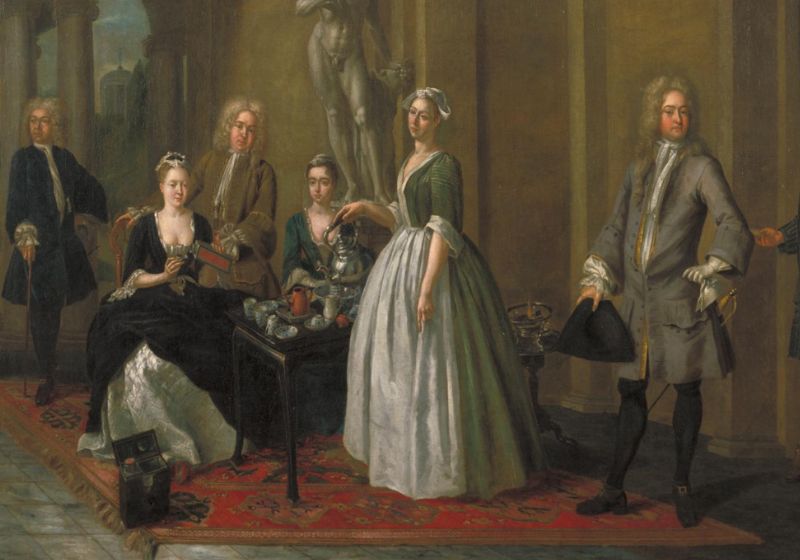Tea, Coffee and Chocolate: How the British first fell in love with caffeine
Tea, coffee and chocolate play an important part in the modern British diet. But did you know that these beverages all arrived in London between 1650 and 1657, causing immense anxiety and public debate?
This lively talk by Melanie King explains why Europeans were at first so terrified of these drinks: pregnant mothers feared adverse effects on their babies if they drank too much chocolate, men claimed tea-drinking caused women to become peevish with their husbands, whilst women felt hard done by in the bedroom if men drank coffee. The talk will also explore some of the ingenious and surprising ways that tea, coffee and chocolate were consumed in the eighteenth century.
Complimentary tea, coffee and chocolate will be available to enjoy during the talk. Attendees are also welcome to bring lunch.
Melanie King is a writer and historian based in Oxfordshire. Her works include ‘The Secret History of English Spas’, ‘Can Onions cure Earache? Medical advice from 1769’ and ‘The Lady is a Spy: The Tangled Lives of Stan Harding & Marguerite Harrison’.
Tickets are available for £5 online and at the Museum Shop (booking fee applies online).
Sales from tickets help support our work to deliver fun and accessible family activities, community engagement projects, schools workshops, exhibitions and special events for Oxford’s people in our Museum spaces.
Access at the Museum
The Museum is accessible for wheelchair users and baby carriers. There is step-free, level entry access to the Town Hall via the entrance closest to Carfax (to the left of the main steps as you face the Town Hall). Inside the Museum, Museum Makers is accessible via a platform lift and lift to the basement level. Accessible toilets are available in the Museum (close to Museum Makers) and in the Town Hall on the ground floor, before entering the Museum. Please contact the Museum team if you’d like to talk to a member of staff about your access requirements. Further access information can be here.


